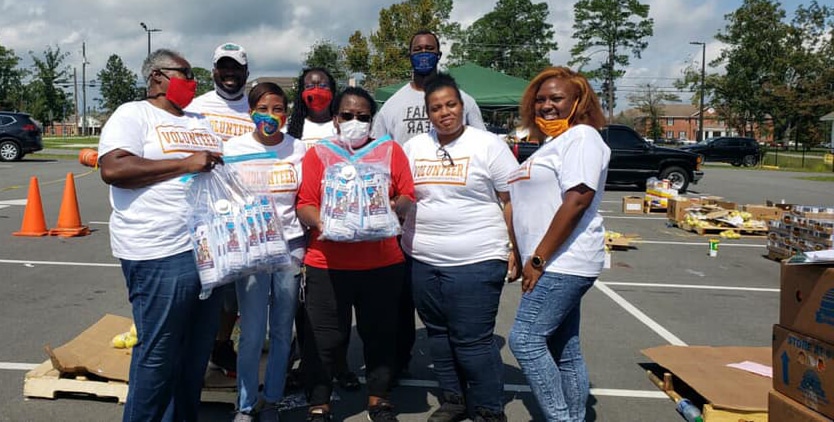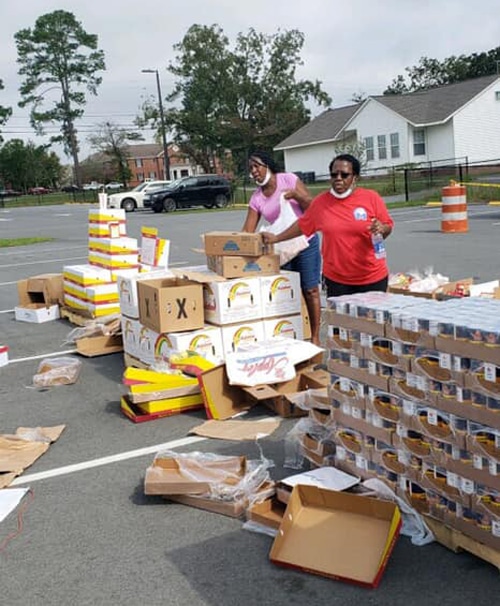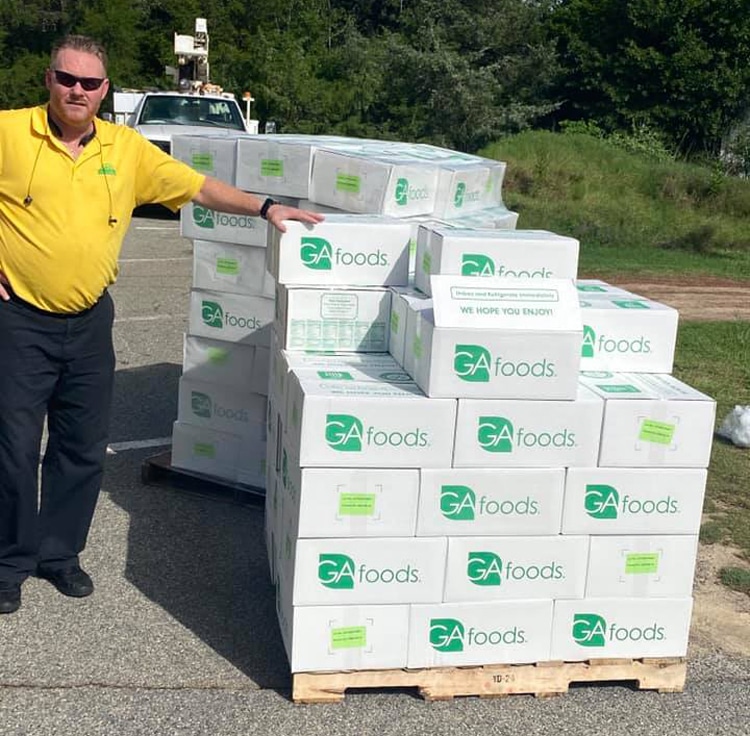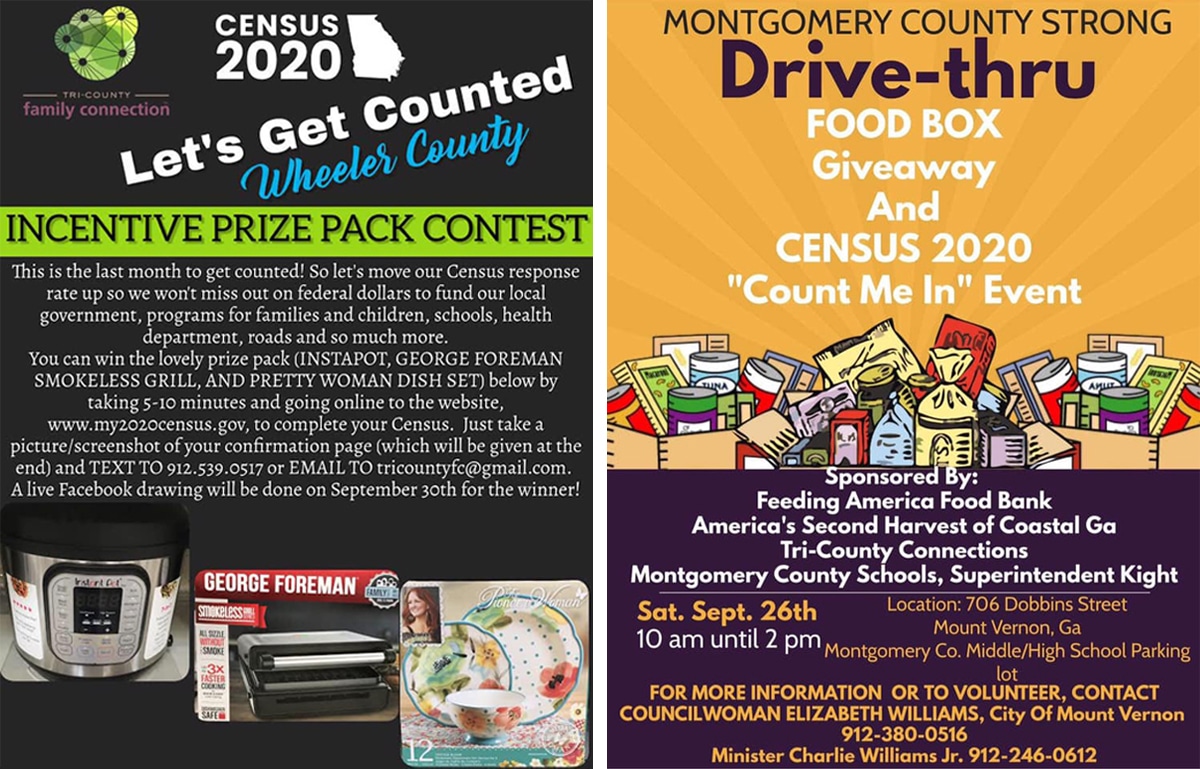Census Events Reach Neighbors in Need in Montgomery, Treutlen, and Wheeler Counties
Print This Post
by Madeline Zupko
Children and families in Montgomery, Treutlen, and Wheeler counties struggle with poverty, low birthweight (LBW), and access to quality health care, transportation, and employment opportunities.
Nearly 30% of all kids in Montgomery County are growing up in poverty, compared to the state average of 21%. The county’s LBW rate also is higher than the state average, and so is the rate of children without health insurance. There also is a high STD rate for youth ages 15 – 19.
In Treutlen County, the LBW rate is high and nearly 18% of children are without health insurance, compared with the state average of 7.4%, with more than a third of those children are living in poverty. There is also a higher-than-average rate of children whose parents lack secure employment.
Meanwhile, in Wheeler County, 20% of kids live in households where parents lack secure employment—substantially higher than the state average of 8%. Students in Wheeler County score well on the Georgia Milestones assessments, but the teen birth rate is high.
Montgomery County Commissioner Brandon Braddy is looking to Census 2020 as a way to improve conditions for his struggling neighbors.
The census results will show where communities need new schools, hospitals and clinics, roads, and services for families, and inform how hundreds of billions of dollars in federal funding are distributed. Business owners will rely on results to decide on where to open new stores, restaurants, factories, and offices, and where to recruit employees. And for these three bordering counties in central east Georgia, an accurate count could help with getting better broadband services to the area.
Braddy reached out to county officials to put on a series of census-promoting events. He turned to Kristy Bennett, coordinator for Montgomery, Treutlen, and Wheeler counties—Tri-County Family Connection—to lead the organizing of efforts.
“It’s vital that everyone be counted, and Ms. Bennett has the ability and desire it takes to reach the community,” said Braddy. “She’s excited about our community and helping those in need. She has a servant’s heart and understands the importance of having an accurate count.”
Tri-County Family Connection originally planned large community events to promote the census but needed to reconfigure what an in-person event might look like after COVID-19 struck and to explore other strategies.

“Our families’ safety and health are essential,” said Bennett, who pointed out that volunteers wore personal protective equipment at smaller food drive events, provided masks to attendees, maintained a 6-foot social distance, and sanitized Chromebooks after people used them to complete their census form online.
Cameron Asbell, regional director of the Ohoopee Regional Library System, provided Chromebooks, and she and her staff have volunteered at outreach events. Additionally, Montgomery County Magistrate Judge Ashley Thornton has made her office available to assist the public with completing the census questionnaire.
“Tri-County Family Connection has an extraordinary network of colleagues and partners. Ms. Bennett provided the team members and ideas to make the 2020 Census effort a success,” said Braddy. “Ultimately, these partnerships made promoting the census possible. There would be no way to conduct these outreach events and efforts without our volunteers.”
The Collaborative partnered with local churches and the senior center in Wheeler County where volunteers helped individuals complete the census form online during four food drives. The library there also provided the Chromebooks while the school system provided mobile hotspots for internet access. Bennett said the local chamber of commerce has been pivotal in volunteering and in planning all events as well.
What became quickly apparent to Bennett at the food drives was that hard-working families, struggling just to put food on the table, were afraid to give out their information for the census. Instead, families were more focused on receiving food boxes packed with fresh fruits, vegetables, milk, meat, cheese, and other items.

“It’s just the culture and mindset of the area,” said Bennett. “Talking with people who didn’t see why they had to complete the census form gave us an opportunity to explain how much money our state and counties would lose by not getting everyone counted. As a result, we got 70 families to complete the census.”
The Collaborative expanded outreach by working with partners to get census flyers out. The school system put them in summer meal bags for students, and utility companies inserted them inside bill envelopes. Tri-County Family Connection also promoted the census on Facebook and Instagram, designed and placed census signs in strategic locations, and placed articles promoting the census in local newspapers.

The Collaborative utilized a grant received from Georgia Family Connection Partnership to assist with census efforts. Individuals who completed the census were entered into a drawing to win cooking-themed prizes.
Talking to younger residents is making a difference, too. “We need to reach the younger crowd with our message of the importance of the census,” said Kristy Collins, a Tri-County Collaborative member and volunteer at a census event. “The younger crowd seemed skeptical at first, but we’ve been able to get through to some of them.”
“This effort is about what’s important to you—the community,” said Braddy. “What’s important to neighborhoods with dirt roads? What’s important to parents with children attending school? If you want a road paved or the best education provided to your children, then everyone needs to take ownership of this census effort. You can’t depend 100% on lobbying federal, state, and local officials for help. These officials can change during a 10-year period but there’s no changing this census count. When the census count is over, it’s over.”
Complete the census form online at 2020Census.gov. You can also respond over the phone in your preferred language, and there’s a TDD number for the deaf and hard of hearing. Or you can respond by mailing in a paper form if you received one.
Contact:
Bill Valladares
GaFCP Communications Director
404-739-0043
william@gafcp.org
Follow us on Twitter: @gafcpnews
Connect with us on Facebook.
Georgia Family Connection Partnership (GaFCP) is a public-private partnership created by the State of Georgia and investors from the private sector to assist communities in addressing the serious challenges facing children and families. GaFCP also serves as a resource to state agencies across Georgia that work to improve the conditions of children and families. Georgia KIDS COUNT provides policymakers and citizens with current data they need to make informed decisions regarding priorities, services, and resources that impact Georgia’s children, youth, families, and communities.
